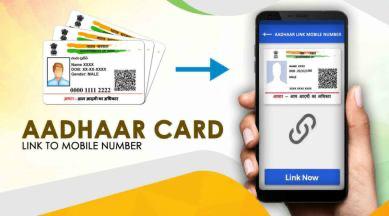 Image Source: The Indian Express
Image Source: The Indian Express
Key highlights
India's telecom sector has been drastically reconfigured by the Telecom Act 2023, effective from June 2024, introducing strict new regulations for SIM card issuance, verification, and ownership. The legislation is intended to safeguard users from escalating digital fraud and rationalize the industry with stringent security measures.
Compulsory Aadhaar Link and Biometric Authentication
Aadhaar-based biometric verification is mandatory for new SIM card activation. Telecos are required to authenticate the identity of each customer through the Aadhaar digital ID platform before offering a new SIM connection. The step supersedes earlier provisions for accepting alternate government IDs and substantially elevates the bar for verifying identities, checking the potential for fraudulent mobile connections and their attendant scams.
Biometric information collected during the online Know Your Customer (KYC) will be saved and matched with the Aadhaar database. The aim is to make sure that only authentic users get active SIMs so that the misuse of anonymous or false identities associated with mobile-based crimes is curbed.
User Limits and Penalties
A total of nine SIM cards are allowed per person across the country, with the exception of Jammu & Kashmir and the Northeast, where the number is reduced to six. Exceeding these thresholds invokes hefty penalties—Rs 50,000 for a first-time offense, Rs 2 lakh for subsequent offenses, and even imprisonment of up to three years for serious offenders, particularly for those dealing in fake documents or SIM mule chains.
Bulk sale of SIM cards is strictly regulated now; bulk connections can be applied for only by users with commercial requirements, and all dealers, point-of-sale agents, and distributors have to get themselves registered with the Department of Telecommunications.
Dealer, Vendor, and Consumer Responsibilities All telecom franchisees, SIM vendors, and point-of-sale agents are now legally required to register and undergo verification themselves. Non-compliance could lead to penalties reaching Rs 10 lakh and possible business bans.
Commercial communications and service messages cannot be transmitted without the specific consent of the recipient; offenders can be fined up to Rs 2 lakh and face possible suspension of service.
Improved Governance and Emergency Powers
The Act allows the government to intervene and assume control of telecommunication networks during emergencies, guaranteeing national security and public safety when necessary.
The telcos are also required to provide accessible online forums for complaints from customers and resolve service quality problems proactively.
The new rules demonstrate India's dedication to both safety and innovation in its digital economy, tracking worldwide trends in biometric SIM identification as a method of fraud prevention.
Sources: India TV News, Biometric Update
Advertisement
Advertisement




